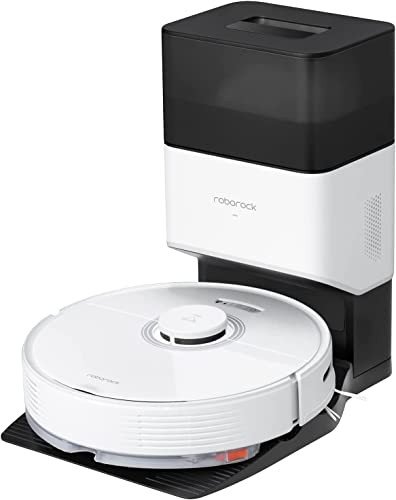10 Facts About Autonomous Vacuum That Make You Feel Instantly The Best Mood
The Rise of Autonomous Vacuums: Revolutionizing Home Cleaning
In the age of technology, home tasks are becoming increasingly automated, and one of the most significant developments in this world is the autonomous vacuum. These intelligent cleaning robots are developed to reduce the drudgery of conventional vacuuming, making them popular among time-strapped households. This post checks out the advancement, performance, advantages, and limitations of autonomous vacuums, along with a contrast of some of the leading models on the marketplace today.
What is an Autonomous Vacuum?
An autonomous vacuum, likewise called a robotic vacuum cleaner, is a little, automated gadget that browses through your home to tidy floors without human intervention. Equipped with sensing units, video cameras, and advanced software, these vacuums can find challenges, prevent stairs, and optimize cleaning paths. They generally run from a rechargeable battery, returning to their charging stations when their power is low or when cleaning tasks are completed.
Key Features of Autonomous Vacuums
Smart Navigation:
- Utilizes sensing units and algorithms to map the environment.
- Can navigate complicated layouts and prevent obstacles.
Scheduling:
- Allows users to set cleaning times.
- Can operate when the house is empty, guaranteeing very little disturbance.
Connection:
- Many models link to Wi-Fi, permitting app control and integration with clever home systems.
- Users can customize settings, check cleaning status, and get alerts through mobile applications.
Suction Power:
- Varies in between designs; some deal adjustable suction settings for various floor types.
- High-end designs feature powerful suction efficient in getting pet hair and deep dirt.
Floor Type Adaptability:
- Capable of cleaning carpets, wood, tiles, and more.
- Particular models concentrate on tailored cleaning for several surfaces.
The Advantages of Using Autonomous Vacuums
1. Time-Saving
Among the most substantial benefits of autonomous vacuums is the amount of time they save. Instead of spending hours pressing a conventional vacuum, house owners can set robotic vacuums to clean while they are participated in other activities.
2. Constant Cleaning Schedule
With the capability to set up cleansings, these vacuums ensure that areas are frequently cleaned, causing a cleaner home overall. Regular cleaning assists keep indoor air quality, specifically for households with allergic reactions or asthma.
3. Smart Home Integration
Numerous autonomous vacuums can be integrated with smart home systems for smooth operation. Homeowners can control their vacuums through voice commands through gadgets like Amazon Alexa or Google Assistant, boosting user convenience.
4. Compact Design
The slim profile of these gadgets allows them to clean under furniture, such as couches and beds, where standard vacuums frequently can not reach.
5. Pet-Friendly
For family pet owners, autonomous vacuums can be a game-changer, as they are often equipped with specialized functions for selecting up animal hair and dander, adding to a cleaner home environment.
Limitations of Autonomous Vacuums
Regardless of their lots of advantages, autonomous vacuums likewise have limitations:
1. Restricted Deep Cleaning
While these vacuums effectively maintain tidiness, they might not change the efficiency of a deep tidy provided by standard vacuums, particularly for greatly stained areas.
2. Capacity Constraints
A lot of autonomous vacuums come with small dust bins that require to be emptied regularly, specifically in bigger homes or homes with animals. This can be a trouble for some users.
3. Navigation Challenges
Although navigation innovation is continually improving, some designs may have problem with specific layouts, especially intricate spaces with various barriers or really little rooms.
4. Cost Point
While prices have become more accessible, high-end models can still be rather pricey, presenting a barrier for some consumers.
Comparison of Top Autonomous Vacuum Models
Design
Smart Features
Battery Life
Suction Strength
Cost Range
iRobot Roomba 980
App Control, Voice Assistant
120 minutes
1700 Pa
₤ 700 – ₤ 900
Roborock S6 MaxV
Advanced Mapping, Connectable
180 minutes
2500 Pa
₤ 600 – ₤ 800
Ecovacs Deebot Ozmo
Mopping, Smart Home
110 minutes
1500 Pa
₤ 450 – ₤ 700
Neato Botvac D7
Laser Navigation, Custom Zones
120 minutes
2000 Pa
₤ 800 – ₤ 900
Shark IQ Robot
Self-Emptying Base, Smart Map
90 minutes
1500 Pa
₤ 400 – ₤ 600
Significant Takeaways
- Smart Features: Consumers ought to prioritize models using robust clever functions for convenience and efficiency.
- Battery Life: A longer battery life is advantageous for bigger home.
- Suction Strength: Depending on home requirements, varying suction power can considerably impact cleaning performance.
Frequently Asked Questions about Autonomous Vacuums
Q1: How do I maintain my autonomous vacuum?
A: Regular upkeep consists of cleaning the brushes, clearing the dustbin, and looking for clogs. Additionally, keeping the sensing units clean will help keep navigation accuracy.
Q2: Can robotic vacuums tidy carpets and carpets?
A: Yes, lots of robotic vacuums are created to successfully clean both difficult surfaces and carpets. However, robot mop and vacuum may vary based on the design.
Q3: Do robotic vacuums need Wi-Fi?
A: While many autonomous vacuums gain from Wi-Fi connectivity for app control and updates, some designs can operate separately without a wireless connection.
Q4: How frequently should I run my robotic vacuum?
A: It depends upon your living situation, however running it numerous times a week is frequently advised, specifically for homes with pets.
In conclusion, autonomous vacuums represent a substantial advancement in home cleaning innovation, appealing benefit and efficiency. While these gadgets might not completely replace traditional vacuum cleaners, they are unquestionably practical in keeping a clean living environment. As innovation continues to progress, the future of home cleaning looks appealing, and these gadgets are at the leading edge of the transformation.
